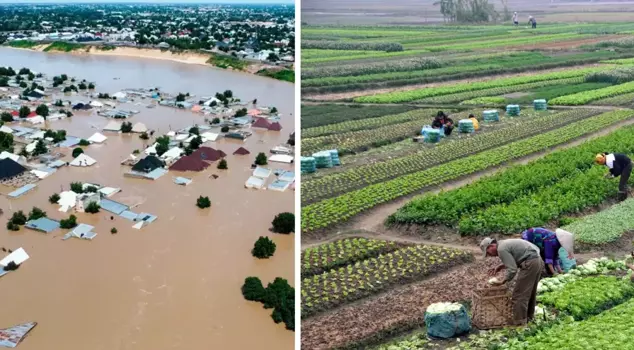
06.11.2024 15:33
In its 2024 Report on Monitoring and Evaluation of Agricultural Policies, the OECD stated that the global agricultural sector is grappling with challenges such as geopolitical tensions and climate change. Highlighting the increase in export restrictions and farmer protests, the OECD emphasized the importance of sustainability and efficiency strategies in agricultural policies.
```html
The Organisation for Economic Co-operation and Development (OECD) reported that the global agricultural sector is facing numerous challenges, including geopolitical tensions, the increasing frequency and severity of extreme weather events caused by climate change, and that export restrictions from some countries are putting additional pressure on the international trading system.
THE AGRICULTURAL SECTOR FACES CHALLENGES WORLDWIDE
OECD published the Agricultural Policies Monitoring and Evaluation Report 2024. According to this report, the agricultural sector is facing a multitude of challenges globally. National and international markets for agricultural products continue to be affected by many short- and long-term events, including the Russia-Ukraine war, rising tensions in the Middle East, and the increasing frequency and severity of extreme weather events caused by climate change.
While export restrictions from some countries are putting additional pressure on the international trading system, intensifying farmer protests in many countries highlight the economic, social, and political challenges facing agriculture.
In this context, countries' agricultural policies are also undergoing changes, and the importance of practices that will ensure sustainability and increase efficiency is growing.
AGRICULTURAL SUPPORTS ARE PROMINENT IN EMERGING MAJOR ECONOMIES
The total support for the agricultural sector in the 54 countries examined in the report averaged $842 billion annually during the 2021-2023 period. Support for agriculture remained high but showed a decline compared to the peak in 2021.
Of the annual support during the 2021-2023 period, $629 billion was provided to individual producers. The majority of this support was seen in major economies. China accounted for 37% of the total annual support for agriculture, the USA for 15%, India for 14%, and the European Union for 13%.
This distribution shows a significant change compared to the early 2000s. During that period, the EU, the USA, and Japan accounted for 26%, 20%, and 16% of total support, respectively, while the shares of China and India were below 15%. The regional distribution also varies in terms of support provided to consumers. In the 2021-2023 period, 67% of agricultural support provided to consumers came from the USA, and 29% from India.
PRODUCTIVITY AS THE DRIVING FORCE BEHIND PRODUCTION INCREASE
The growth in productivity practices has been the driving force behind the significant increase in agricultural production in recent years, but productivity practices alone are insufficient to increase production. In this context, the OECD proposes policy approaches to make agriculture more sustainable, productive, and resilient in the face of ongoing challenges facing global tensions and food systems.
Setting clear targets for sustainable productivity growth strategies, investing to increase productivity capacity, reducing environmental impacts, enhancing producer support tied to environmentally sustainable production practices, ensuring the sustainable management of natural resources, and identifying innovation systems to better guide advanced productivity and environmental performance targets are among these recommendations.
SUPPORTS FOR AGRICULTURE IN TURKEY
According to the report, the support provided to producers in Turkey during the 2021-2023 period was close to the OECD average at 11%. Budget support for producers was provided in the form of premium payments to producers of certain products, while area payments specific to products like hazelnuts continued. Other types of support included area-based crop insurance and assistance for covering fuel and fertilizer costs.
During this period, the total support provided to the sector in Turkey corresponded to 1% of the gross domestic product in 2021-2023.
This rate indicates that the overall economic growth is faster compared to the sector, and it was above the OECD average of 0.6%. According to the report, Turkey focuses on innovation, improving irrigation, and developing and utilizing crops suitable for local conditions for sustainable productivity growth. However, the OECD recommends that this model should be implemented in a way that does not deter farmers from trying new products or methods and should focus on providing a favorable environment for farmers.
```